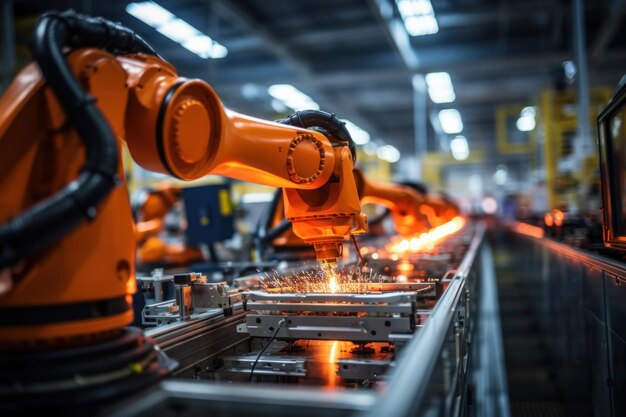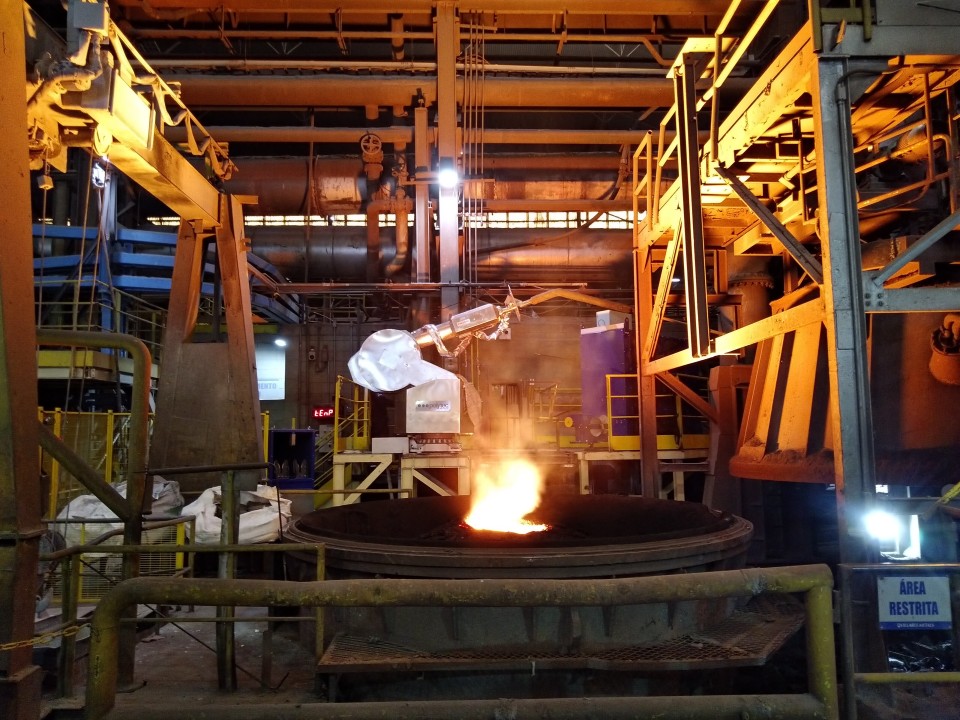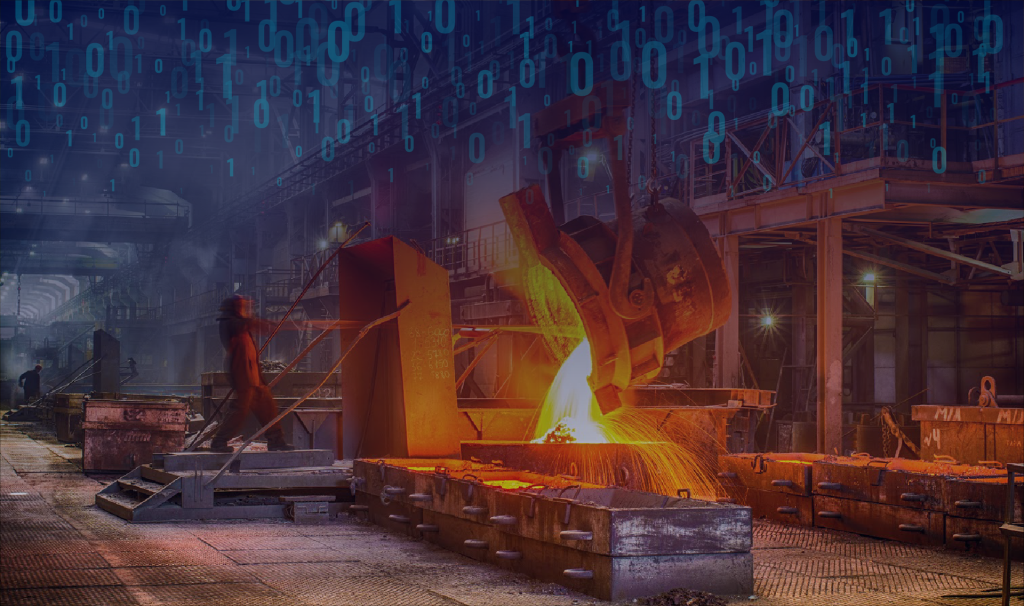Empowering Steel and Aluminum Industry through Power AI Solutions
The steel and aluminum industry has long been the backbone of global infrastructure, playing a crucial role in various sectors such as construction, automotive, aerospace, and more. As industries evolve in the 21st century, embracing technological advancements becomes imperative for sustained growth and competitiveness. One such transformative force is artificial intelligence (AI), particularly power AI solutions. In this article, we will delve into how Power AI is revolutionizing the steel and aluminum industry, enhancing efficiency, sustainability, and overall performance.
Table of Contents
Understanding Power AI Solutions
Power AI solutions refer to the integration of artificial intelligence algorithms and technologies into various aspects of industrial processes. In the context of the steel and aluminum industry, these solutions are designed to optimize operations, improve decision-making, and enhance overall productivity. By harnessing the power of AI, manufacturers can unlock new possibilities, streamline processes, and achieve unprecedented levels of efficiency.

Predictive Maintenance for Enhanced Reliability
One of the key challenges in the steel and aluminum industry is the maintenance of complex machinery and equipment. Unplanned downtime can lead to significant production losses and increased costs. Power AI solutions address this challenge by implementing predictive maintenance models that analyze historical data, sensor readings, and other relevant information to predict potential equipment failures. This proactive approach allows for timely maintenance interventions, minimizing downtime, and ensuring the reliability of critical machinery.
Process Optimization for Increased Efficiency
The steel and aluminum manufacturing processes involve a series of intricate steps, each contributing to the final product. Power AI solutions can optimize these processes by analyzing vast amounts of data in real-time. For example, AI algorithms can adjust parameters such as temperature, pressure, and speed to maximize efficiency and reduce energy consumption. This not only improves the overall production throughput but also contributes to cost savings and sustainability goals.
Quality Control and Defect Detection
Ensuring the quality of steel and aluminum products is paramount to meeting industry standards and customer expectations. Power AI solutions play a crucial role in quality control by implementing advanced image recognition and defect detection algorithms. These systems can identify minute defects or irregularities in real-time, allowing for immediate corrective action. The result is a significant reduction in the number of defective products, ultimately improving customer satisfaction and reducing waste.
Supply Chain Optimization
Effective supply chain management is critical for the steel and aluminum industry, considering the global nature of the market and the diverse sources of raw materials. Power AI solutions contribute to supply chain optimization by analyzing market trends, demand forecasts, and logistics data. This enables manufacturers to make informed decisions regarding procurement, production planning, and distribution, ultimately reducing lead times and improving overall supply chain efficiency.
Energy Management for Sustainability
The steel and aluminum industry is known for its significant energy consumption. Power AI solutions can aid in optimizing energy management by monitoring and analyzing energy usage patterns. Through machine learning algorithms, manufacturers can identify opportunities to reduce energy consumption without compromising production efficiency. This not only contributes to cost savings but also aligns with the industry’s growing emphasis on sustainability and environmental responsibility.
Challenges and Considerations in Implementing Power AI Solutions
While the benefits of Power AI solutions in the steel and aluminum industries are evident, there are challenges and considerations that manufacturers must address during implementation.

Data Security and Privacy Concerns
The implementation of AI solutions involves the collection and analysis of vast amounts of sensitive data. Ensuring the security and privacy of this data is paramount to prevent unauthorized access and potential breaches. Manufacturers must implement robust cybersecurity measures and comply with relevant regulations to safeguard their operations.
Workforce Training and Adaptation
Integrating Power AI solutions into existing manufacturing processes requires a skilled workforce capable of understanding and leveraging these technologies. Companies need to invest in training programs to upskill their employees and ensure a smooth transition to an AI-enabled environment. Collaboration between human workers and AI systems is essential for optimal results.
Initial Investment and ROI Considerations
While the long-term benefits of Power AI solutions are substantial, the initial investment required for implementation can be significant. Manufacturers need to carefully assess the potential return on investment (ROI) and develop a comprehensive strategy for phased implementation to manage costs effectively.
Regulatory Compliance
The steel and aluminum industry is subject to various regulatory frameworks and standards. Implementing AI solutions requires adherence to these regulations, ensuring that the technology meets industry-specific compliance requirements. Manufacturers must stay informed about evolving regulations and adjust their AI implementations accordingly.
Future Outlook: The Evolution of Power AI in the Steel and Aluminum Industry
As technology continues to advance, the role of Power AI in the steel and aluminum industry is expected to evolve further. Here are some key trends and future possibilities:

Integration of Internet of Things (IoT)
The combination of Power AI solutions with the Internet of Things (IoT) will enable even more comprehensive data collection and analysis. Smart sensors embedded in machinery and equipment will provide real-time data, allowing for enhanced decision-making and further optimization of manufacturing processes.
Autonomous Systems and Robotics
The deployment of autonomous systems and robotics in the steel and aluminum industry will work in tandem with Power AI solutions. This integration will result in fully automated production lines, reducing the need for human intervention in repetitive and hazardous tasks.
Continued Focus on Sustainability
As environmental concerns become more pronounced, Power AI solutions will play a crucial role in helping the steel and aluminum industry meet sustainability goals. This includes further optimization of energy consumption, waste reduction, and the development of eco-friendly manufacturing processes.
Advanced Materials and Product Innovation
Power AI can contribute to the discovery and development of advanced materials with enhanced properties. Manufacturers will leverage AI algorithms to explore new alloys and production techniques, leading to innovative products with improved strength, durability, and other desirable characteristics.
Conclusion
Power AI solutions are transforming the steel and aluminum industry, ushering in an era of unprecedented efficiency, sustainability, and innovation. As manufacturers embrace these technologies, they position themselves for long-term success in an increasingly competitive global market. The integration of predictive maintenance, process optimization, quality control, supply chain management, and energy efficiency through Power AI not only enhances operational performance but also paves the way for a more sustainable and resilient future for the steel and aluminum industry. By addressing challenges and staying attuned to emerging trends, manufacturers can harness the full potential of Power AI to propel their businesses into the next era of industrial excellence.

